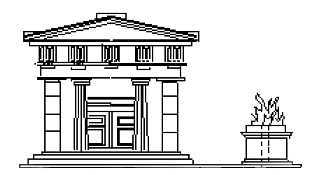| Hypercommunication - Crash Courses - Second-order Systems Theory [ Hyper-Library ] [ Hyper-Lexicon ] [ back ] |
|
|
backward - Page 12 - forward |
|
As an observer I call something a phenomenon for which I am looking for an explanation. Quasi-etymologically, the term phenomenon means that it is about an appearance of something else, and thus that one would like to know what appears (note 1). The phenomenon is not in the thing, but in the fact that I want an explanation for a certain thing. There are as many things in my environment as I like, which I do not want to have explained. For example, I do not need to know why it is cold in my refrigerator and why bananas are crooked. But if I want to, I can ask for it and turn things into phenomena. If I had stood in front of the temple of Heron of Alexandria in ancient Greece, I could have asked why its doors would open as if guided by the hand of the gods (or automatically) when the priest lights the fire in front of the temple. Well, how can the phenomenon with the temple doors be explained? |

|
|
Give at least an explanation of the temple door! |
Pay attention to what formulations can be considered as explanations at all. |
|
Examples:
|
Of course there are as many phenomena as there are explanations. Not only ancient Greeks ask for explanations. Nietze said: "Man can put up with almost anything as long as he has a why."
|
Name some more phenomena ! |
Nowadays, many people find it difficult to imagine phenomena because they have an explanation for almost everything. Even if it is difficult for you, continue to imagine yourself as an ancient Greek who can still be amazed by temple doors that open by themselves. |
|
Examples:
|
So in a sense, this systems theory begins with a phenomenon. But behind the phenomenon is an observer who wants an explanation. In this sense, this systems theory starts with an observer. And of course I can also see that this systems theory begins with me saying something about an observer, that is, observing an observer.
|
|
backward - Page 12 - forward |